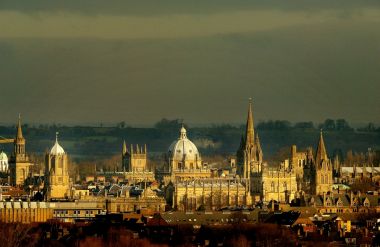Is extremism putting free speech in UK universities under threat?

Concern that the Islamic State militant 'Jihadi John' may have been radicalised while attending a London university has re-stoked the debate about free speech in academic institutions.
Mohammed Emwazi was last week identified as the IS militant who has appeared in numerous beheading videos for IS. Emwazi attended the University of Westminster between 2006 and 2009. Former students have told the press that the university "created a hostile environment towards non-Muslims" and that it was heavily reliant on the income from foreign students, many of whom were Muslim, and so did not sufficiently scrutinise those invited to speak there.
The university has strongly defended the claims. And although the concerns may not prove true, they have prompted the institution to suspend all student events of a "sensitive" nature.
These fears come amid an ongoing debate about the freedom of expression at British universities – and it doesn't just apply to religious groups. Recent cases include Oxford University cancelling a debate on abortion last year because people objected to the fact it was being debated by two men. And among the more bizarre examples are Birmingham University's ban on sombreros because they were deemed "racist" and UCL's student union banning the Nietzsche reading group.
Concerns were raised earlier this year by both academics and religious groups about the potential effect of the new Counter-Terrorism and Security Act. Guidance accompanying the Bill, which was issued in January, said universities would have to monitor groups on campus and vet talks and speakers.
While most Christians would support attempts to crack down on radicalisation, there were fears that this could have a negative impact on Christian unions and evangelical organisations hosting events at British universities.
The Universities and Colleges Christian Fellowship (UCCF) said at the time the Bill was being debated that although they supported government efforts to combat terrorism, there needed to be a distinction between Islamist radicalisation and the work of Christian unions. "The basic tenets of the Christian faith have nothing to do with terrorism, so what possible justification can there be for jeopardising time-honoured freedoms in an attempt to counter Islamist threats?" the chairman of the board of trustees John Lenton and director Richard Cunningham said in a joint statement.
Academics also said in February that the proposed legislation was a threat to freedom of speech and would place an "unenforceable duty on educational institutions". The government responded to these concerns, and proposed amendments to protect the freedom of expression in universities.
But the fresh concerns about islamist radicalisation in Britain has resulted in a spat between politicians this week over the right way to tackle extremism. The Conservatives have said they want to ban any extremist speakers addressing events at academic institutions, while Liberal Democrat sources told the Guardian that they should not be banned but such events must be chaired appropriately. Christian Concern said there are fears this will mean the government could "go back" on the protections for free speech in unversities.
Conservative Party chairman Grant Shapps admitted earlier this week the coalition parties are divided over the issue. He said there was a "difference of opinion" between Liberal Democrats and Tories in an interview with Dermot Murnaghan for Sky News. He specifically said Lib Dem business secretary Vince Cable opposed the Tory approach: "Vince Cable doesn't want to do what the Conservatives want to do, which is to make sure that on campus we do not have radical preachers saying things which incite violence which ultimately can lead to the radicalisation of young people."
Responding to the latest developments, chief executive of Christian Concern, Andrea Williams said: "The Christian Union movement has worked successfully for over 90 years, during which no incident has been reported of CU meetings being used to radicalise students. The free speech of such groups shouldn't be undermined in an attempt to counter Islamist threats, particularly given that the mainstream teachings of the Christian faith have no relevance to terrorism. It is vital that the government names and addresses the real problem, namely the radicalisation of students by Muslim extremist groups."
She added that the government has "a duty to protect groups that are peaceable and bring great benefit and variety to student life – namely Christian Unions."
While the government struggles internally to decide how best to approach the issue, Christians will have to demonstrate that reasonable, peaceful debate is still an important part of academic life in Britain.











